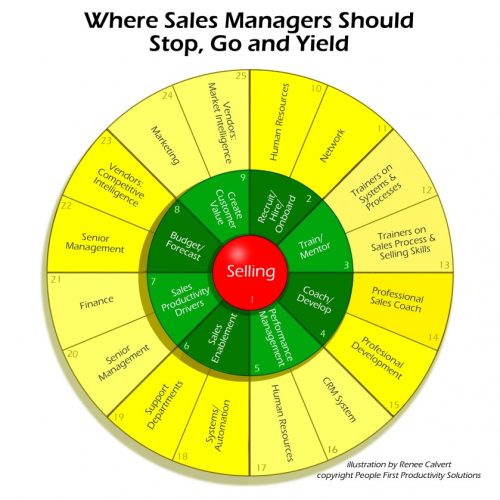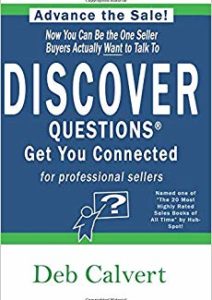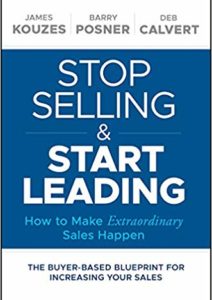Is there any role in any industry with less clarity and consistency?
This is an article for people who hire Sales Managers. It’s an article about the pure role of Sales Manager – a person who does not handle accounts personally but does supervise others (called salespeople) whose primary function is to sell. It is not about “sales managers” who are given this title because they manage accounts or those with dual responsibility for account management and people management.
I have to clarify this because “Sales Manager” has become a blanket term for far too many disparate duties and random roles. Creative and catch-all configurations make it increasingly difficult to define exactly what it is that Sales Managers are supposed to do.
This lack of clarity has far-reaching ramifications for the sales profession. It’s one of the reasons Sales Managers seldom segue smoothly from one company to another. Lack of clarity about this essential role confounds other parts of the business, too, resulting in unproductive rework and conflict between departments. But when a Sales Manager’s role is not well-defined, the most devastating losses show in today’s revenue and tomorrow’s bench strength.
This lack of clarity has become the norm. A recent search on “Sales Manager” postings produced a vast assortment of job descriptions even within similar industries and geographies. Contrasted to other management roles (accounting, supply chain, human resources), the variations are extreme.
Here’s the common denominator. Most (surprisingly not all!) job descriptions for Sales Managers listed revenue production as a key responsibility. The variation is in what a Sales Manager is supposed to do in order to generate revenue. I did not find a single posting that was absolutely clear in defining what the Sales Manager would be doing. Instead, I found a plethora of vague and meaningless phrases.
Here are examples from just one posting. The post was packed with phrases like “instill accountability,” “develop and refine sales skills,” “increase success rate on prospecting,” “minimize errors and service recovery costs,” “help develop repeatable programs,” and “meet hiring sales targets.” These phrases describe how a Sales Manager will be measured. They do not express what a Sales Manager is to do.
What’s more, these phrases indicate there is significant blurring of responsibilities at this well-known company. The work of Human Resources, Training, Customer Service and Marketing professionals is embedded in these phrases. Are Sales Manager really supposed to do all of this single-handedly?
That common denominator – revenue production – also blurs the line. Sales Managers who are promoted because they’ve been strong revenue producers will naturally revert to their strength. They’re good at selling, measured by sales, unfamiliar and untrained in non-selling work, and stretched beyond what any one person could realistically do (as evidenced in the phrases above from an actual job posting). Is it any wonder that Sales Managers prefer selling even when their role becomes managing?
It’s time for Sales Managers and sales organizations to clarify the role. This simple graphic may be a starting point. Green is for “go” and represents the key focus areas for a Sales Manager. Red means “stop.” Yep, you read that right. Pure Sales Managers should not be selling. They should be hiring, training, coaching, performance managing, enabling, equipping and supporting sellers to sell. Yellow signals proceed with caution or yield. The outer circle shows resources, specialists or alternatives to share the workload (and probably do it better, faster, cheaper than the Sales Manager). 
If Sales Managers focused more narrowly on the work shown in the green ring, they would be more effective. Their sales teams would be more effective, too. What prevents this from happening? Companies must provide clear boundaries and accountabilities that are not diluted by deliverables or overly ambitious in the expectations of any one role. Equally important, they must provide Sales Manager training.
All eight of the green slices in this diagram represent primary duties that require training and experience. Plenty of Sales Managers perform these tasks every day without training… which why so many flounder and fail. Just look at the recruiting/hiring/onboarding slice as a case in point. Add up all the mistakes and missed opportunities in your own organization resulting from poor talent selection practices. It’s costly to have vacant sales positions, expensive to hire and ramp up new salespeople and a complete waste of money to bring in the wrong people. An investment in training Sales Managers is a no-brainer when it comes to ROI. So why do so few sales organizations do this?
You don’t provide training because you aren’t clear about what you want your Sales Managers to do. But “revenue production” doesn’t happen automatically when you plop some former top producer into a next-level role and expect him or her to figure it out. This job is too important for that kind of neglect.
Be clear on what your Sales Managers need to do in order to produce the results you want from them. Train them on those tasks. Support them in areas requiring other expertise. Then help them to do the same for their sellers. Make it clear that managers manage and sellers sell. Only then will you have a high functioning sales organization.
Pipeliner CRM empowers sales managers with intuitive, visual intelligence. Get your free trial of Pipeliner CRM now.













Comments